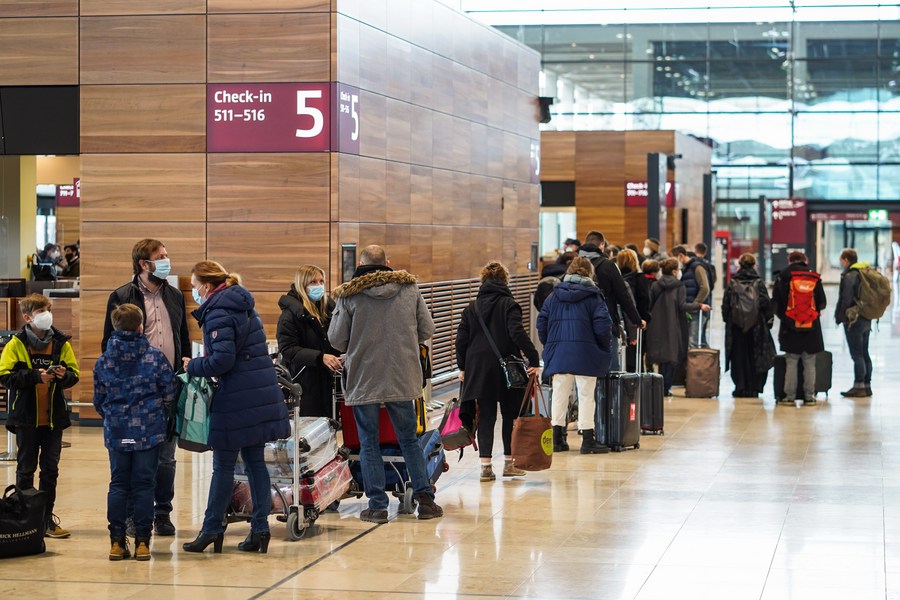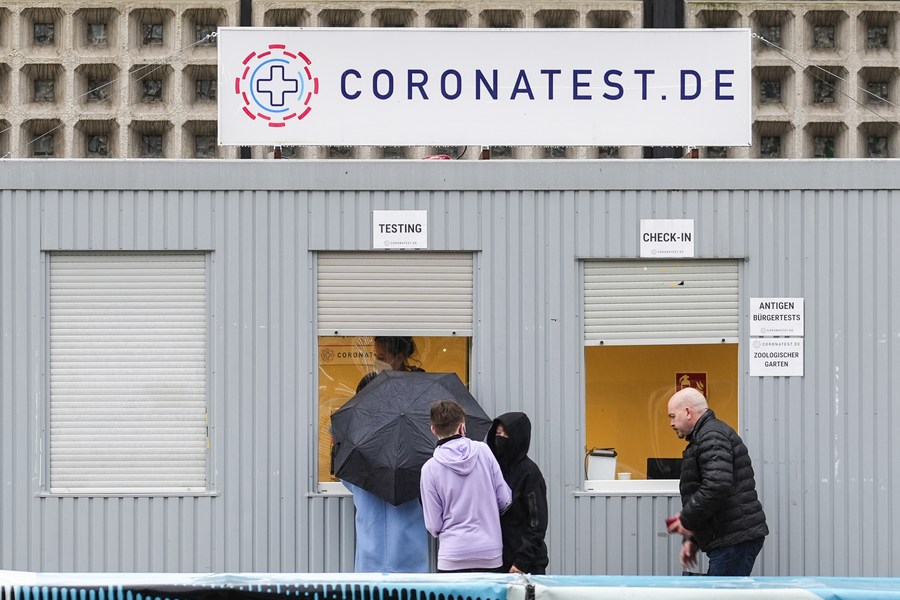
Passengers wait to check in at Berlin Brandenburg Airport in Schoenefeld, Germany, March 23, 2021. (Photo by Stefan Zeitz/Xinhua)
Under the eased regulations, electronic entry registration will no longer be required for travelers entering Germany.
BERLIN, March 2 (Xinhua) -- COVID-19 restrictions for entering Germany are to be eased from Thursday, as the government no longer considers any other countries high-risk, it said in a statement on Wednesday.
In the future, the high-risk classification will only apply to areas where a more dangerous variant than Omicron is spreading, for example, the Delta variant, the government said.

People wait to receive COVID-19 tests at a testing station in Berlin, Germany, on Feb. 18, 2022. (Photo by Stefan Zeitz/Xinhua)
Under the eased regulations, electronic entry registration will no longer be required for travelers entering Germany. However, the "3G rule," which stands for vaccinated, recovered or tested, will still apply upon arrival, although children up to the age of 12 will be exempt from this rule. Previously, it had only applied to children up to the age of six.
Germany's seven-day COVID-19 incidence rate has continued to fall after the Omicron peak, reaching 1,171.9 infections per 100,000 inhabitants on Wednesday, according to the Robert Koch Institute (RKI) for infectious diseases.
Daily infections declined from record levels of around 240,000 to 186,406 on Wednesday, around 22,600 less than a week ago, according to the RKI.

A woman wearing a face mask waits for a train in Berlin, capital of Germany, on Feb. 2, 2022. (Photo by Stefan Zeitz/Xinhua)■












